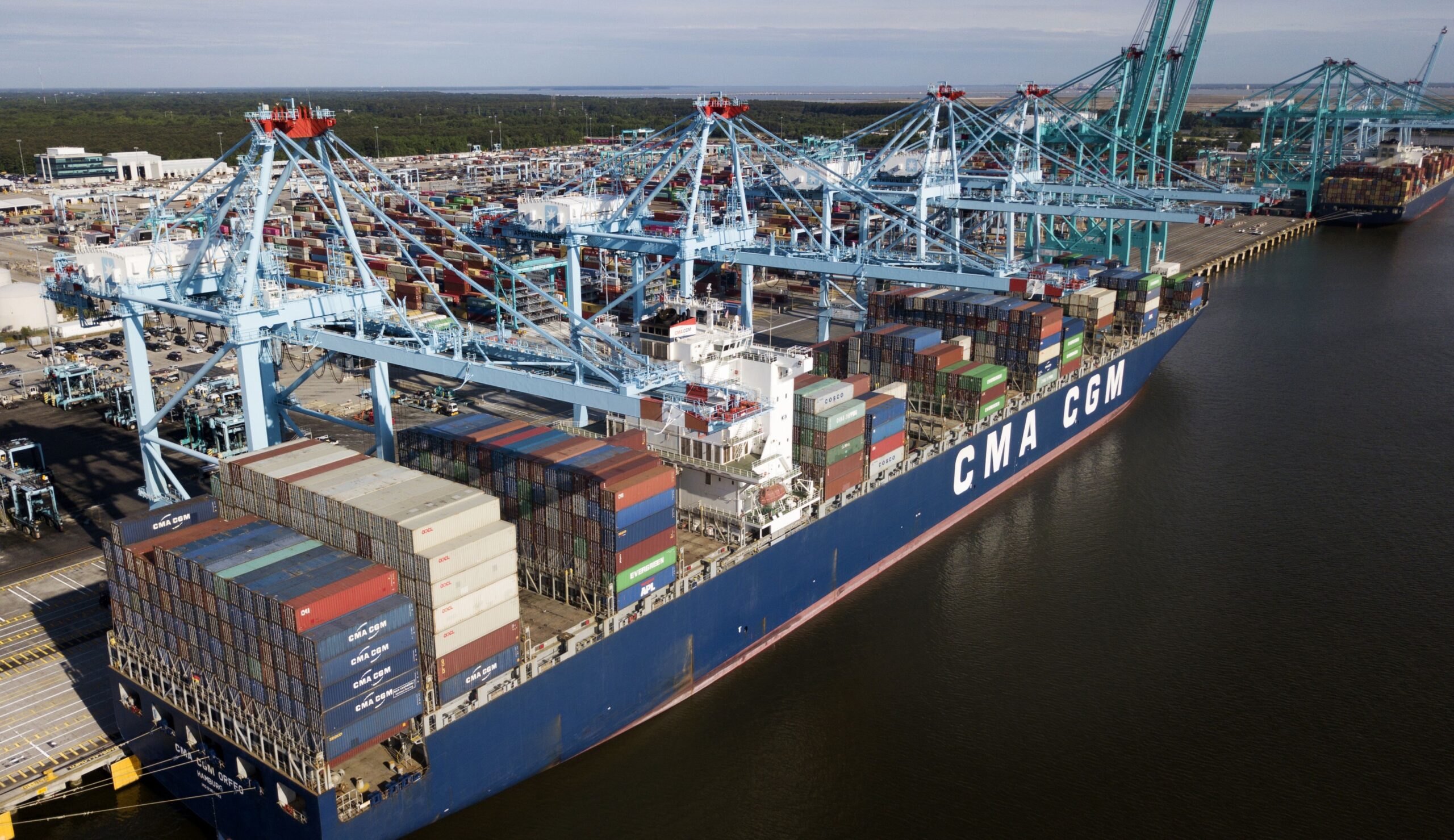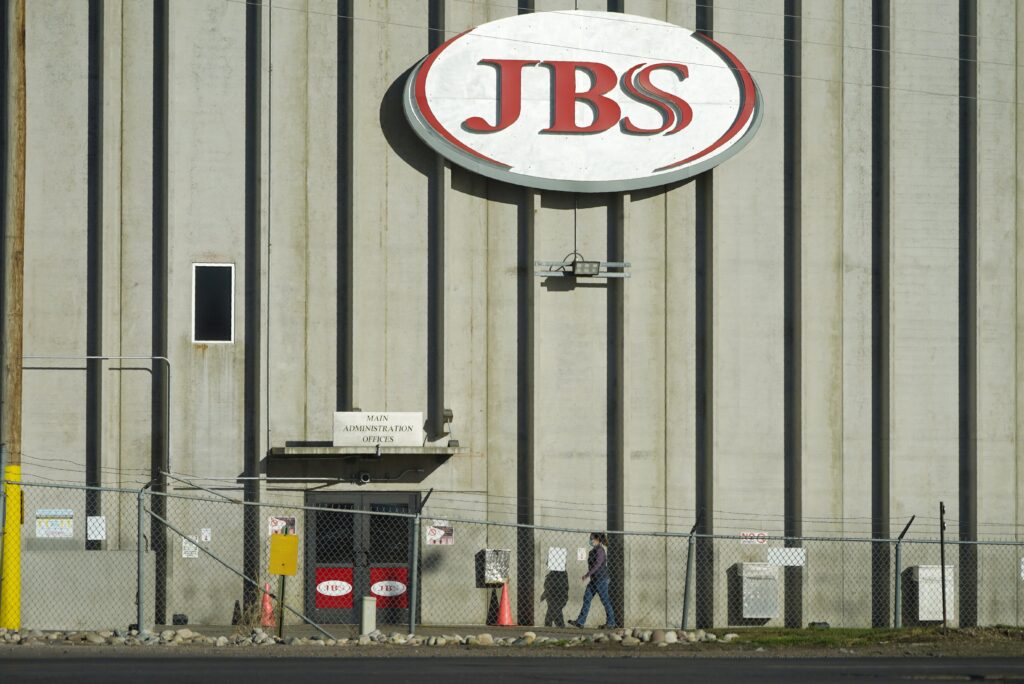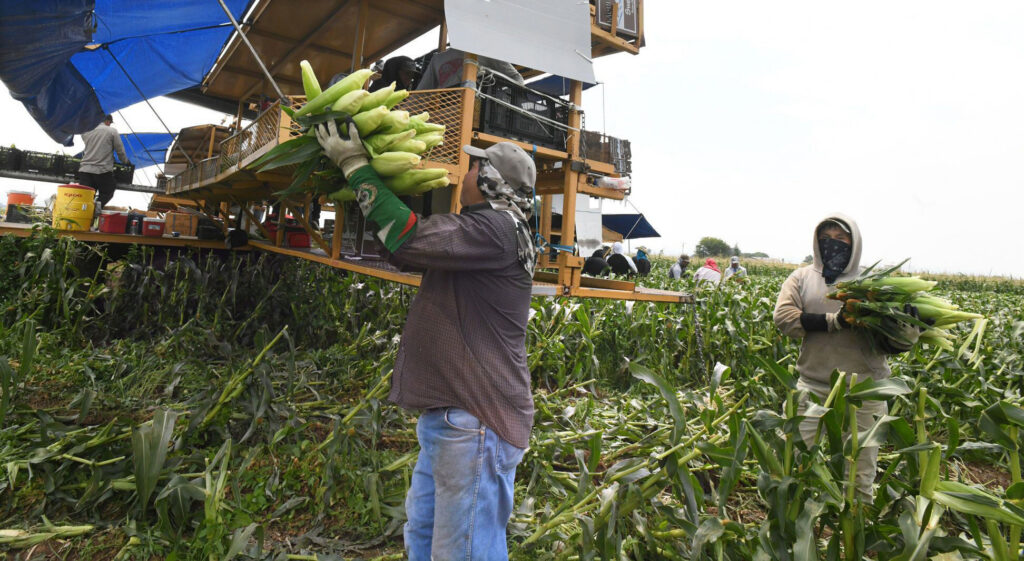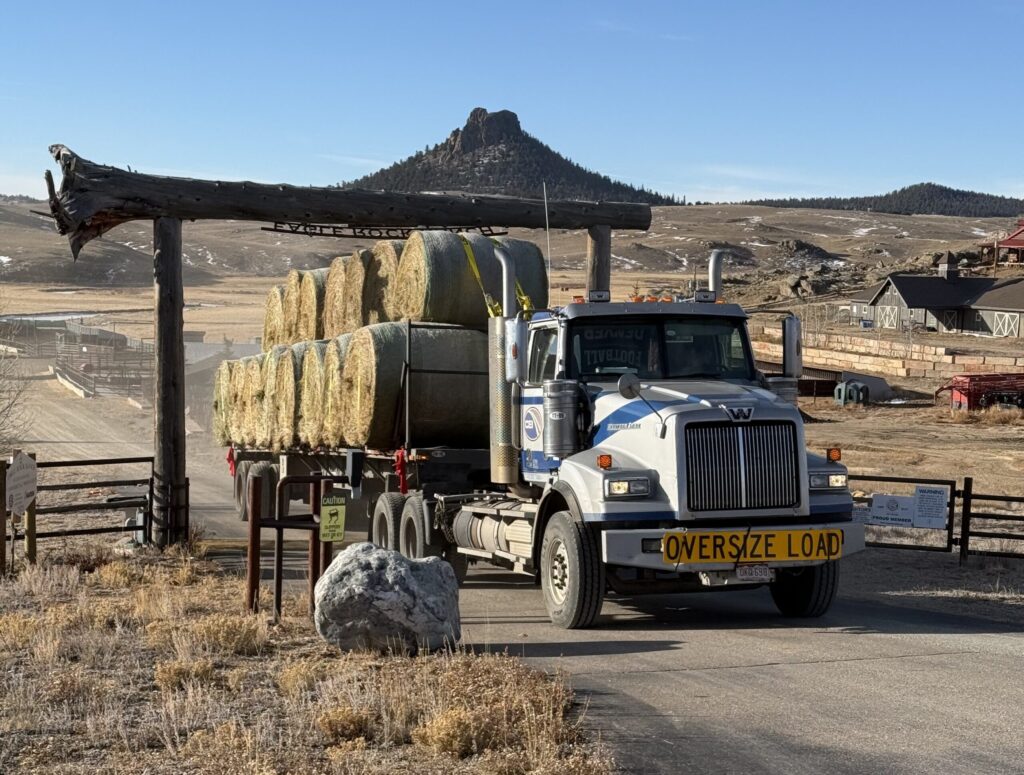Gov. Jared Polis says Trump’s tariffs policy is disrupting Colorado’s exports, jobs

A report released Thursday by Colorado’s governor said President Donald Trump’s tariffs policy is disrupting the state’s economy and courting a recessionary scenario.
State economists have, in fact, been sounding the risk of a scenario for a year — preceding both the White House’s tariffs changes and the congressional budget that Democrats blamed for Colorado’s $800 million deficit.
As recently as June, analysts said the chances of a recession in the next year stood at 50% and climbing.
Since Trump took office, tariffs have increased sevenfold to about 21% in Colorado, according to the report. Nationwide, it’s closer to 24%. A year ago, the tariffs averaged around 3%.
The last time tariffs went that high occurred in 1910, Gov. Jared Polis said in a news conference on Thursday.
“Colorado is paying the price for Trump’s trade war,” the governor said.
It’s the second time in as many weeks that Polis has blamed the Trump administration for major challenges Colorado is facing. Last month, he and other Democrats said the congressional budget that the president signed is “solely” responsible for Colorado’s state deficit. Republicans have countered that Democrats only have themselves to blame, arguing they overspent for years, instead of heeding warnings of a looming deficit.

Meanwhile, a critic of Democrats told Colorado Politics that Polis is merely copying the playbook of Attorney General Phil Weiser and Secretary of State Jena Griswold in blaming the Trump administration for the woes the state faces, while offering no concrete solutions.
“Rather than blaming Trump and complaining about Colorado’s economic downturn, Polis needs to look at his own policies and his own party’s control that have led Colorado to becoming the fourth most expensive state in the nation,” said Kristi Burton-Brown, a former chair of the Colorado Republican Party and an official of a group pushing for tax cuts.
“That’s his legacy. If he wants to help businesses, he should stop increasing taxes on them and actually cut their taxes,” she said.
Trump’s critics have repeatedly decried the major changes to America’s tariffs, arguing the escalation has led to a trade war, in which American workers and businesses will ultimately lose out. Many also argued that the swings in policy have led to much uncertainty, making it difficult for businesses to plan.
Trump and his allies, on the other hand, argued that the tariffs changes are necessary to remedy a trade imbalance, in which barriers are low for foreign companies to enter the American market, even as they keep theirs high. Countries, particularly China, have exploited that imbalance, they said. The administration also argued that, broadly speaking, the policies would compel American companies to return their manufacturing bases to the U.S.
The report from the governor’s Office of Strategic Planning and Budgeting said the industries hit hardest by the tariffs imposed by foreign governments in retaliation include energy, agriculture, construction and aerospace.
The report came out of an executive order Polis issued in July, in which he asked his budget office to look at direct impacts of tariffs and opportunities to position Colorado better or protect the state.
The 94-page report covered the impacts.
It did not outline solutions.
Instead, Polis pointed to lawsuits filed by Weiser against the Trump administration on tariffs.

Trump had filed an emergency appeal with the U.S. Supreme Court after a Washington, D.C. federal appeals court last week struck down the majority of the tariffs. That appeal, however, won’t be heard until after the court begins its 2025-26 session next month.
The OSPB report predicted a recession for Colorado in 2026 and 2027 “due to extremely elevated tariffs weighing on consumer demand, business activity, and the labor market.”
The agriculture sector has been hard hit by the tariffs, resulting in a 25% loss of exports, the report said.
Colorado’s No. 1 export is beef. Its two biggest trading partners are Canada and Mexico, though the United States-Mexico-Canada Agreement from 2020 has somewhat muted the impact on Colorado exports.
That’s not the case for other trading partners, notably China, which has imposed a 30% tariff on U.S. goods.
About 10.7% of Colorado exports go to China.
Colorado and the U.S. had been gaining ground in China after being shut out from the market for most of the century.
China banned U.S. beef in 2003 after a case of bovine spongiform encephalopathy, also known as Mad Cow’s Disease, was detected. It took 14 years before China opened its doors again with limitations in 2017.
The country later dropped many restrictions and opened the market more fully to U.S. beef in 2020.
The cost of building materials is rising as a result of tariffs, Polis also said.
He said the higher costs of materials have counterbalanced state efforts to spur condo construction and encourage more dense housing development.
Meanwhile, Colorado’s aerospace industry is expected to lose about $61 million and 195 jobs, the report said. Switzerland, a major exporter of aerospace equipment, including aircraft, has imposed a 39% tariff on the United States, the report said.
The tariffs will also hit the state government, the report said, estimating Colorado could lose about $800 million in revenue over the next two years. That would arise out of, among other things, higher construction materials costs for state agencies, such as the Department of Transportation, the report said.
The report estimates a $110 million hit just to the Department of Education.
Jeff Kraft, deputy director of the Office of Economic Development and International Trade, talked about the “reputational damage” to Colorado, particularly in tourism, resulting from the tariffs.
He explained his point this way. The OSPB report had noted that tourism in 2024 contributed $28.5 billion to the economy, with $1.9 billion in state and local tax revenues, while supporting 188,510 jobs.
International visitors spend more when they come to Colorado, Kraft said.
Summer bookings from Canadian tourists in mountain towns across the U.S. is down about 55% amid political and trade tensions, the report said, although Colorado has fared a little better than other states.
Bryce Cooke of OSPB, meanwhile, noted the impact on the Colorado economy. Currently, Colorado’s gross domestic product (GDP), an indicator of economic health, sits at at 1.6%. It’s expected to drop to 0.6% in 2026, an indication of a stagnant economy, Cooke said.
The report said things could get worse if Trump decides to escalate the situation: “The resulting effective tariff rates are likely to result in a recession for both the U.S. and Colorado.”
Under that scenario, GDP could actually dip below the negative line, the report said.
The news isn’t all bad, according to the report. Of particular note, Colorado is expected to fare better than other states, especially those that rely on China as a major trading partner, it said.
Burton-Brown, the executive vice president of Advance Colorado Institute, said the governor should offer solutions.
“Polis didn’t propose a single solution at his press conference, but that makes sense after he signed multiple special session bills raising taxes on businesses just a week ago,” she said. “He should oppose the progressive income tax hike ballot measure that targets small businesses. And, he should stop signing so many laws that impose needless regulations on Colorado businesses.”
“Finally,” she added, “instead of hosting press conferences, he should form a Blue Collar Commission and get real advice from business owners and key industry leaders on how he can lower Colorado’s cost of living that’s driving business out of the state.”













